Blog: And then there were seven … The Arctic Council carries on minus Russia
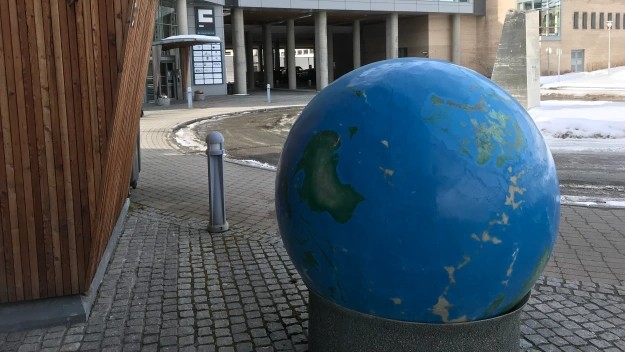
With Russia holding the rotating chair of the Council until May 2023, when the position is still expected to be passed to Norway, the organisation became the Schrodinger’s Cat of Arctic diplomacy, in the sense that it was both active and inactive at the same time.
As far as Moscow is concerned, the decision by the other Council members to suspend operations was ‘politicised and clearly irrational’ [in Russian]. The Russian government has also since stressed that it was nonetheless dutifully carrying out its chairing responsibilities despite the withdrawal of the other members. In reality, official meetings have been cancelled, and important work, including addressing ongoing climate change challenges in the Arctic and providing a platform for Indigenous peoples’ cooperation, has been largely suspended.
During the spring, debates intensified, including during the recent Arctic Frontiers conference in Tromsø, over how long the Council could operate under these circumstances, and whether some sort of attempt at a low-level engagement with the Russian government would be undertaken to keep cross-regional cooperation operating, even at a minimal level.
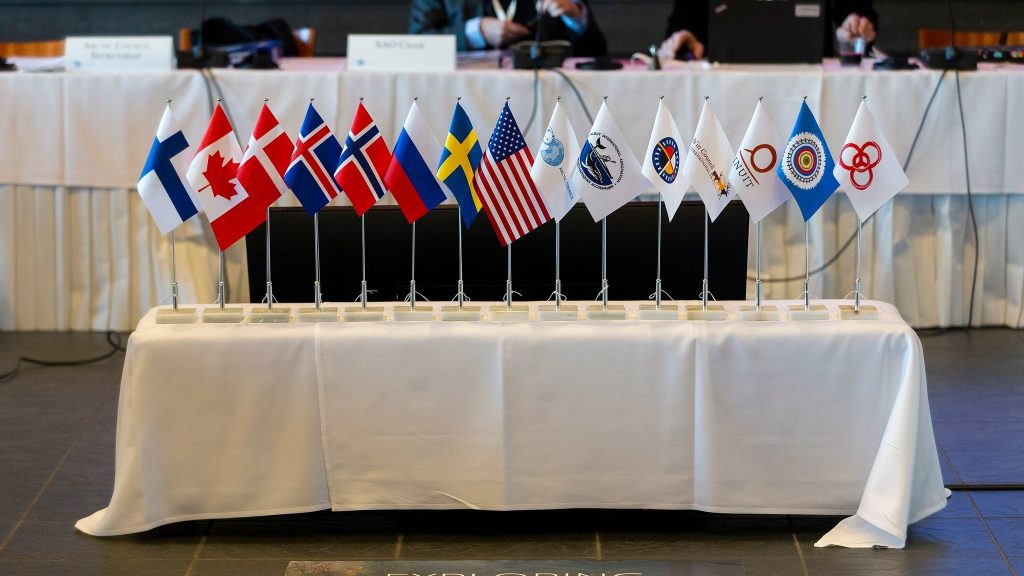
Instead, a decision was made last week by the other seven members of the organisation to restart some deliberations without Russian involvement. Now, the question is whether the Council will ever be able to return to the pre-2022 status quo, or will we see the beginning of a bisected Arctic, with Moscow going its own way. Regardless of the longer-term security situation in Europe, the reputation of Arctic organisations as being able to withstand external political pressures may be broken beyond repair. Moreover, as the Arctic becomes of greater strategic concern to many governments, and with Finland and Sweden having formally applied for membership in NATO, (albeit with Turkey/Türkiye still expressing reservations about the bids), the concept of the far north being separated from military affairs since the end of the cold war has also faded.
‘Limited resumption’ of Arctic Council projects
In a joint statement by the governments of Canada, the Kingdom of Denmark (including Greenland), Finland, Iceland, Norway, Sweden and the United States, released on 8 June, there would be a ‘limited resumption’ of Arctic Council projects without the participation of the Russian Federation. Although there were no specifics as to which projects were to be revived, the statement added that there would be a focus on ‘responsibility to the peoples of the Arctic, including Indigenous peoples’, and that ‘additional modalities’ would be reviewed to further the work of the Council.
Russia is the largest Arctic state, with the longest coastline on the Arctic Ocean, and its activities impact the greater Arctic region in many ways, so regional cooperation without Russian participation will be a challenge. Even before the invasion of Ukraine, political divisions between Moscow and the ‘Arctic Seven’ (A7) had been widening for the past decade. Moscow has been critical of the decision made by the Finnish and Swedish governments to apply for NATO membership, with Russia’s Senior Arctic Official, Nikolai Korchunov, stating that the expansion of the alliance would result in ‘certain adjustments in the development of high-altitude cooperation’.
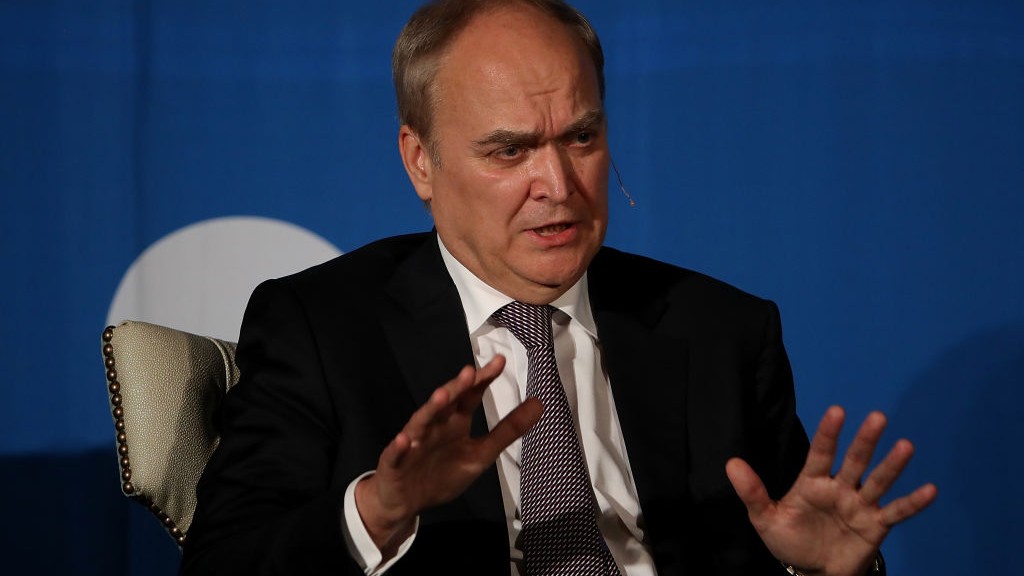
In the wake of the announcement by the A7 that Council activities would recommence without Russian participation, the country’s Minister of Natural Resources, Alexander Kozlov, decried [in Russian] the decision as illegitimate and potentially leading to ‘serious consequences, a sentiment echoed by Russia’s Ambassador to the United States, Anatoly Antonov, who said that any decisions taken by the Council without Russian participation would be ‘illegal’ in nature.
Both the initial suspension of the Arctic Council and the decision to resume activities without Moscow have created ripple effects in regional politics as well as internationally. It was reported that the organisation’s Permanent Participants, namely the Indigenous peoples’ organisations throughout the Arctic, were not consulted on the restart decision.
The Ukraine conflict, and the split within the Council, has affected Indigenous cooperation in the Arctic, as the Russian Association of Indigenous Peoples of the North (Ассоциация коренных, малочисленных народов Севера, Сибири и Дальнего Востока Российской Федерации or RAIPON) had issued a statement [in Russian] in support of Russian actions in Ukraine, (a decision sharply criticised by representatives of Russian Indigenous organisations outside of the country.
Will Arctic governance become balkanized in the long term?
The status of the Working Groups under current circumstances is also unclear, which not only has implications for environmental cooperation but also for diplomacy between Arctic and non-Arctic governments, as there are thirteen observer governments within the Council whose activities are largely centred on Working Group activities. It is also uncertain how new applications for formal observer status will be addressed when the chair position is scheduled to be transferred to Oslo. Two Baltic states, Estonia and Latvia, are amongst those seeking observer positions in 2023.
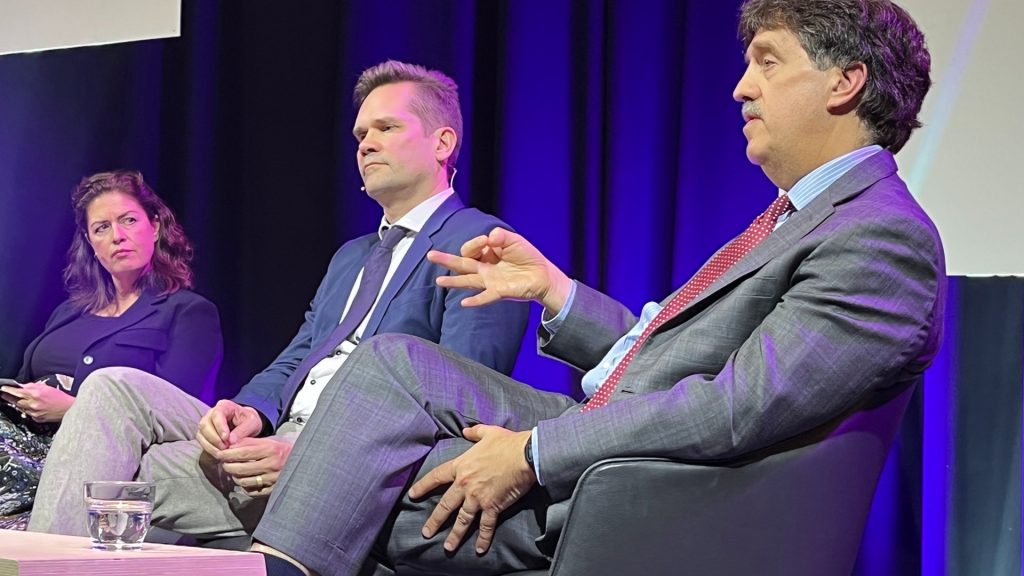
The rapid changes to the structure of the Arctic Council are only some of the many signs that the Ukraine conflict has prompted the emergence of, as David Balton of the White House Arctic Executive Steering Committee noted at the 2022 Arctic Frontiers event, different ‘constellations’ of cooperation in the far north. NATO’s role in the Arctic may soon expand considerably, other regional organisations, such as the Euro-Arctic Barents Council and the Arctic Coast Guard Forum, have been affected by the diplomatic fallout from the invasion, and official Russian participation in Track II events in the Arctic has also been curtailed.
At the same time, cooperation amongst the A7 nations may also be undergoing a transformation. Last week it was announced that after decades of negotiations, the Canadian and Danish governments were set to announce a resolution to the Hans Island / Tartupaluk sovereignty dispute which would entail a land border being placed on the small Arctic islet.
It was also announced last month that the United States was seeking to significantly increase investment in its military facilities at Thule in northern Greenland, in light of concerns over the security of the Atlantic-Arctic region. Washington has also deepened military cooperation with Norway, including via an agreement allowing US forces to make more extensive use of military facilities in the Norwegian north, (the Ramsund Naval Base at Tjeldsund and Evenes Air Station at Nordlund).
It is too soon to tell whether Arctic governance will become balkanized in the longer term, but at present the Russian attack on Ukraine may have inexorably affected Arctic diplomacy in new and sometimes unpredictable ways.
Related stories from around the North:
Canada: Arctic Security – Will Canada’s federal budget deliver for NORAD?, Eye on the Arctic
Finland: US military refuelling plane flies over Finland day after NATO announcement, Yle News
Greenland: Denmark, Faroe Islands agree to establish air surveillance radar to bolster gaps in Arctic surveillance, Eye on the Arctic
Iceland: Arctic security discussed at Reykjavik Northern Group meeting, Eye on the Arctic
Norway: “Useless to continue regional diplomatic relations”, The Independent Barents Observer
Russia: Russia pauses nuclear safety cooperation with Norway in the North, The Independent Barents Observer
Sweden: Finland will not go into NATO without Sweden, president says, Radio Sweden
United States: U.S. Army poised to revamp Alaska forces to prep for Arctic fight, The Associated Press

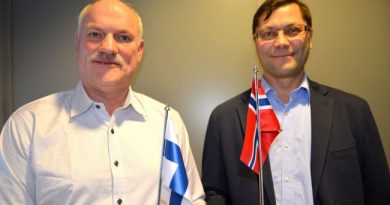
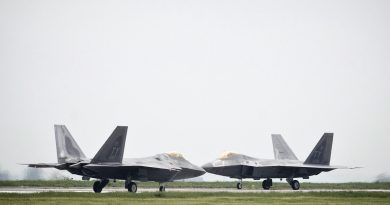
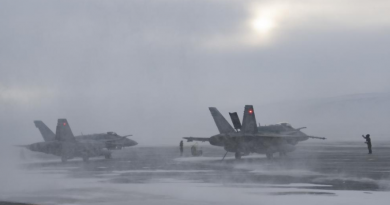
very good article. Thank you